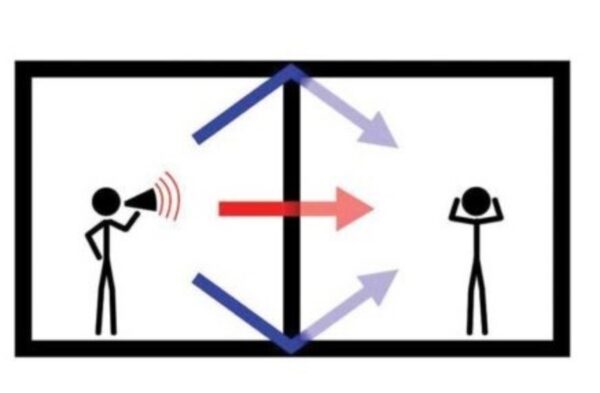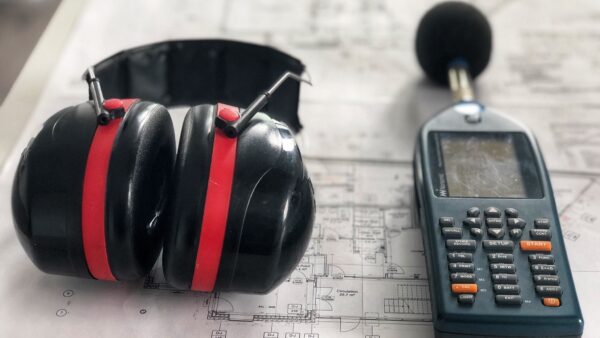What Types of Sound Insulation Testing is Needed on Flats?
There are two types of sound tests that are required for flats to comply with Approved Document E; they are:
Airborne Walls and Floor Tests – These types of sound tests are carried out on separating walls and floors/ceilings between flats. An airborne sound test measures levels of sound transmitted through the air, such as speech and TV and Music noise. We use the latest Dodecahedron loudspeakers that produces white noise on one side of the partition, and measure noise with a Level 1 decibel meter on the other side of the partitions to check how much sound is lost through the partition.
Impact Floor Tests – This type of sound tests is only carried out on separating floor/ceiling divides between dwellings. An impact test measures the levels of noise transmitted directly through a separating construction as a result of impact noise such as footfall. We use a Norsonic tapping machine, which drops metal hammers onto the floor to create impact noise. We then measure the amount of sound that passes through the partition with a decibel meter on the other side of the dividing partition.
All types of sound insulation testing should only be completed on ‘habitable’ rooms. Habitable rooms can be Lounges, Living Rooms, Studies, bedrooms and open plan kitchens. Test findings are fed into a report, that will compare the results against the Part E Building Classification, which will clearly show a pass or fail. Thereafter the sound test report, will be sent to the client. As a UKAS accredited testing laboratory, our sound test report should always be acceptable to your tasked Building Control, and will help you to achieve building signoff for Approved Document E.
We know how important a sound insulation certificate is to you in achieving building control signoff, that’s why we pull out all the stops to make certain that you get the certificate quickly. We pride ourselves on the fact that our sound insulation certificates are issued with speed and efficiency.
Even before you get the sound test certificate, you will receive the results of the test. First, our skilled and competent acoustic engineers give you a verbal result at the site. Then, a written report is sent to you within 24 hours of a working day.
So why do we need Sound Testing on Flats?
When sound resistance (or sound insulation) is high in party walls and floors, the environment is more comfortable for residents as sound affects every aspect of our lives including home/work environment and while relaxing.
Insufficient sound insulation usually causes distress and discomfort while an effective sound insulation system brings about speech privacy and helps to improve relaxation and often helps to improve sleep patterns. This is one of the several reasons why sound insulation is a key element in building.

If, for example, resident working night shifts may not be able to sleep if their neighbours like to play loud music. Robust levels of sound insulation will help to reduce the noise and help to improve the quality of a person’s life in diverse ways. There are also developments where the neighbouring units are used for different purposes, such as home/work/studio units, in such cases a sound test ensures that the noise coming from each unit is minimal.
For further information sound insulation on party floors in Flats, please see our sound test checklist or visit us at www.aptsoundtesting.co.uk or call us on 01525 303905.
